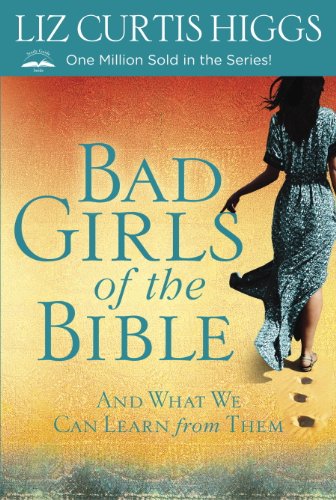
Ancient Anglican
A Modern Perspective on Early Christian Thought.
New on the Blog
Bad Girls of the Bible – Mrs. Lot, pt.2
The sin of Sodom, therefore, goes beyond inhospitality and sexual lust for heavenly beings. Ezekiel’s statement also gives us an insight into Mrs. Lot’s character and why she longingly looked back to her life in the city.
Bad Girls of the Bible – Mrs. Lot, pt.1
How is the story of Lot’s wife a wonderful example of the dangers of remaining in the past or the dangers of having an affinity with those to whom we do not belong?
Bad Girls of the Bible – Mrs. Potiphar, pt.2
This story has an interesting life after the Scriptures. In later rabbinic literature and in the Koran, this story is reworked with some of the gaps in the Biblical narratives filled in or changed.
Bad Girls of the Bible – Mrs. Potiphar, pt.1
As you read through the story of Joseph and Potiphar’s wife in Genesis 39, look at the different layers of indiscretion we encounter.
Bad Girls of the Bible – Eve, pt.2
As presented by Higgs, the first important part of the story of Eve is her equal dignity. She is not created by God to be subservient to Adam.
Bad Girls of the Bible – Eve, pt.1
The story of Eve is the story of what causes sinful desires within us and how we can, in looking at Eve, hopefully overcome or avoid these desires.
Bad Girls of the Bible – Introduction
She says that when she became a Christian and began studying the women of the Bible she failed to identify with the saintly women of the Bible. But, as she writes, “Something clicked inside of me when I happened upon Jezebel.”
Ponder These Things – Praying with Icons of the Virgin. pt.2
The second Icon is the Eleousa – Lady of Tenderness. In this Icon, we see the Child embracing, grasping, and pushing himself toward Mary. He is actively seeking her with a love of insistent intensity and immediacy.
Ponder These Things – Praying with Icons of the Virgin. pt.1
The first Icon is the Hodegetria – she who shows the way. This Icon creates a circular movement. The Virgin gestures towards the Child, introducing her son to us and pointing us away from herself. The Child gazes at Mary’s face giving loving attention to someone besides himself.
Jude – The Book of Enoch
Jude’s only quotation from any source is the Book of Enoch in vv. 14-15.
Jude vv.24-25
Jude tells us, that in Christ, we too are being made perfect so that we too may stand upright in the presence of God’s glory so that we too will be without blemish.
Jude vv.20-21
Jude is one of the few places in the New Testament where the persons of the Trinity are explictly mentioned together and their unique role is explained.








